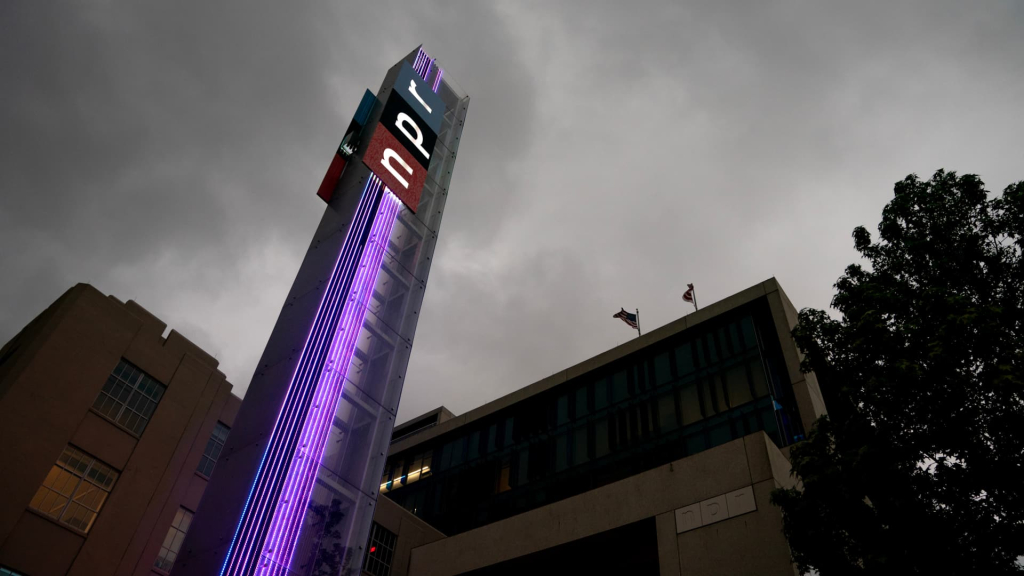National Public Radio (NPR) has initiated legal action against President Donald Trump, contesting his executive order that halts all federal funding for the nonprofit organization.
The lawsuit, filed on Tuesday in federal court in Washington, D.C., asserts that Trump’s May 1 directive infringes upon the First Amendment rights surrounding free speech and press, while also overstepping the boundaries of Congressional authority. NPR is joined in this suit by three public radio stations: Colorado Public Radio, Aspen Public Radio, and KSUT Public Radio.
According to the complaint, Trump’s order “also threatens the existence of a public radio system that millions of Americans across the country rely on for vital news and information.” The plaintiffs are seeking a permanent injunction against the order as well as a ruling that it is unconstitutional.
The legal representatives of NPR and its affiliate stations argue that the order is designed to “punish and control Plaintiffs’ news coverage and other speech the Administration deems ‘biased.'” They contend that such a directive cannot be permitted to stand.
Previously, both NPR and the Public Broadcasting Service (PBS) committed to legally contest Trump’s decision, which claims that government-funded journalism is “not only outdated and unnecessary but corrosive to the appearance of journalistic independence.”
NPR, established in 1970, employs hundreds of journalists, whose reporting is disseminated through over 1,000 local radio stations. Initially, NPR’s funding was primarily provided by Congress via the Corporation for Public Broadcasting (CPB); however, this arrangement transformed in the 1980s as the Reagan Administration aimed to reduce public media financing.
Currently, the CPB distributes federal funds to local member stations, which in turn purchase NPR programming. According to NPR, fees from member stations constitute 30% of its funding, while direct federal revenue accounts for only 1%. The largest segment of its financing, 36%, is derived from corporate sponsorships.
The lawsuit underscores that Congress has consistently acknowledged that public funding supports speech that remains private and fully safeguarded against censorship, retaliation, or governmental interference, as aligned with constitutional principles and democratic values.
The attorneys for the plaintiffs pointed out, “Yet the President—criticizing what he perceives as ‘bias’ in the award-winning journalism and cultural programming produced by NPR—has issued an Executive Order that thwarts Congress’s intent and the First Amendment rights of Plaintiffs to be free from the government’s attempts to control their private speech, and their rights to be free from retaliation aimed at punishing and chilling protected speech, journalistic activities, and expressive association.”
This is breaking news. Please refresh for updates.


























